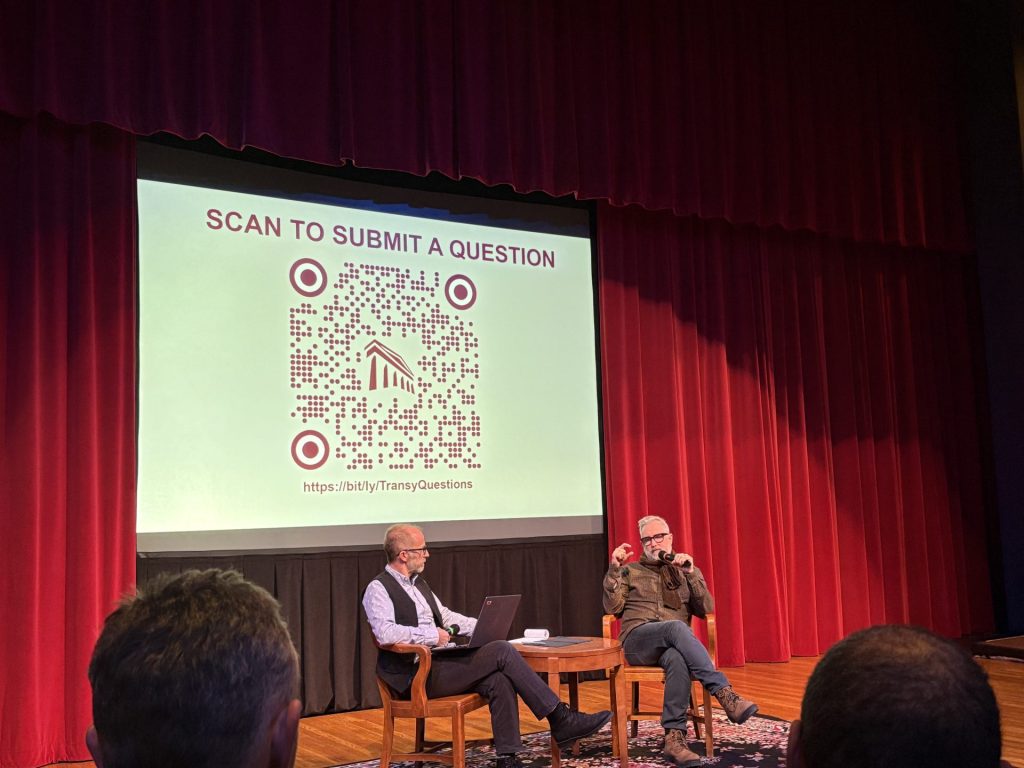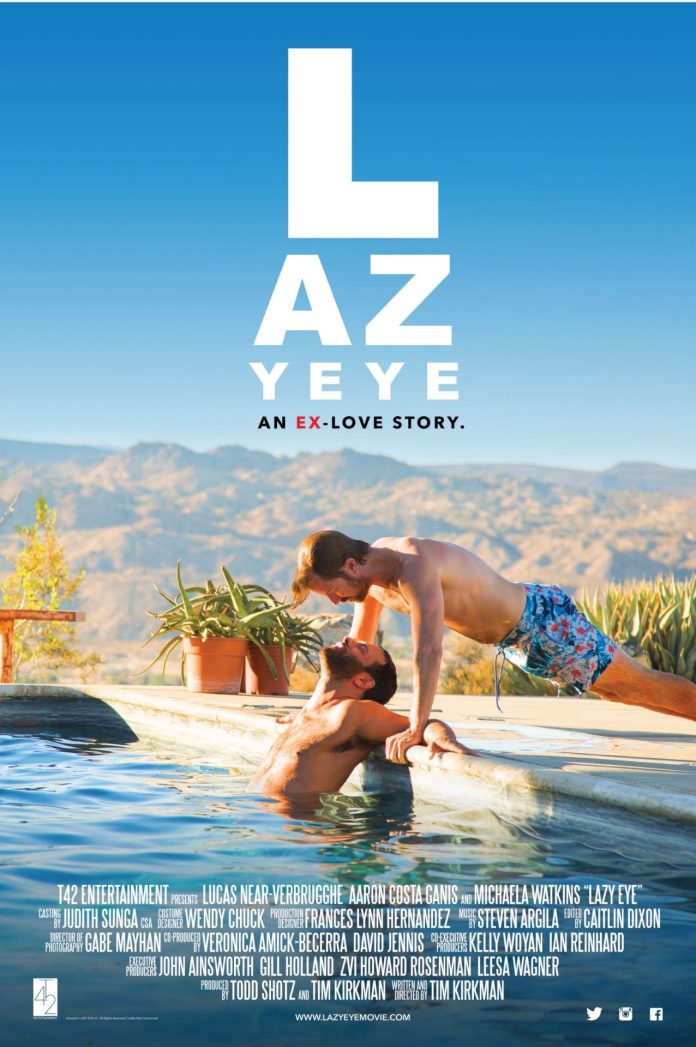I don’t usually get to do things like this (busy schedule and all), but last Thursday, I got to attend a screening of Tim Kirkman’s film Lazy Eye along with several dozen other students, faculty and visitors. Personally, the film itself was good, but I wish I’d gotten to speak to Kirkman after the movie ended— the film’s halting progression and Kirkman’s brief comments on its themes leave a little too much to the imagination for a truly satisfying viewing experience.
Lazy Eye is a film that takes place over a single weekend in a little house in Joshua Tree, California. The protagonist is a gay graphic designer named Dean (Lucas Near-Verbrugghe), whose ex-boyfriend Alex (Aaron Costa Ganis) has just reached out for the first time in fifteen years after their relationship collapsed due to Alex’s sudden disappearance. Once they meet up in Joshua Tree, they waste no time picking up where they left off, rekindling their romance and flirting over Harold and Maude and Dean’s complaints about his work. However, several startling revelations about their respective pasts put Alex and Dean’s reunion in jeopardy, and the two must decide whether it will be worth it to continue their relationship or call the whole thing off.
In terms of the film’s strengths, the cast and set carried the movie. Near-Verbrugghe was wonderfully, painfully guilty as Dean, his complicated, insurmountable feelings for Alex leaving the audience sympathetic and completely frustrated all at the same time (á la Louis in Tony Kushner’s Angels in America). Costa Ganis’ portrayal of Alex is undeniably sweet and sensual with a bitter undercurrent of hesitation that emerges during moments of vulnerability. With such a small cast, the two are on-screen for almost the entire film, a presence that adds to the film’s emotional impact, rather than distracting or drawing away from it. All throughout, the isolation of the little house in Joshua Tree contributes to the feel of Alex and Dean’s secret, budding romance, the backdrop of mountains and stars present in nearly every shot making the audience feel as if they’re intruding on something intimate.

And really, they must be, because Kirkman doesn’t seem keen on giving his audience anything more than what they see onscreen. The plot— for all its twists and turns— doesn’t really go anywhere in the end, leaving several questions unresolved and the characters’ development similarly up in the air. It’s entirely possible that this was intentional on Kirkman’s part; during the Q&A session following the screening, any questions about the film’s themes or open-endedness were answered with a vague statement about leaving further interpretations up to the audience. As a fan of ambiguous endings myself, I can certainly respect this, but from a writer’s perspective, I’m doubtful that this approach was suited to such a simplistic, isolated story. With “bottle episode” films like these, the lack of action or effects tends to increase the audience’s focus on the script. With no other source of resolution, they expect a complete story within the writing itself. And although depriving audiences of that satisfaction ensures that they’ll be thinking about the film for a while, perhaps it’s not in the way a director might intend. I’m personally unsure, but Kirkman seemed perfectly happy to leave it in the audience’s hands.
However, there was one question Kirkman answered in full. It was a good question and I’m going to print his answer here, both because of its relevance and the fact that it was the only time he was clear about the film’s themes. I’m still not sure if I like Lazy Eye or not, but even if the film itself wasn’t clear to me, I’m glad Kirkman addressed this part out loud. It seems important.
[AUDIENCE MEMBER]: What did you hope people would take away from this movie when it first came out (2016), and how has this changed?
[TIM KIRKMAN]: I think putting something out in the world in any art form at all is a risk, and you do it as an offering. I set out to make a movie where queerness wasn’t the center of the story. I didn’t want to make it the problem in the story. Since Lazy Eye came out eight years ago, it’s less of an important question. But these people have problems just like anyone else and that normalization is what I want people to take away from this.
I think those old stereotypes will stop as soon as you stop taking our rights away and attacking us, because we will stop making movies about how you do that.
And then we will be as boring as you are.
*Tim Kirkman is an American director whose previous work includes the feature films 2nd Serve and Loggerheads, as well as the documentaries The Night Larry Kramer Kissed Me and Dear Jesse, which was nominated for an Emmy in News/Documentary Writing in 2000. Lazy Eye was released in 2016 and can be found on Amazon.*



